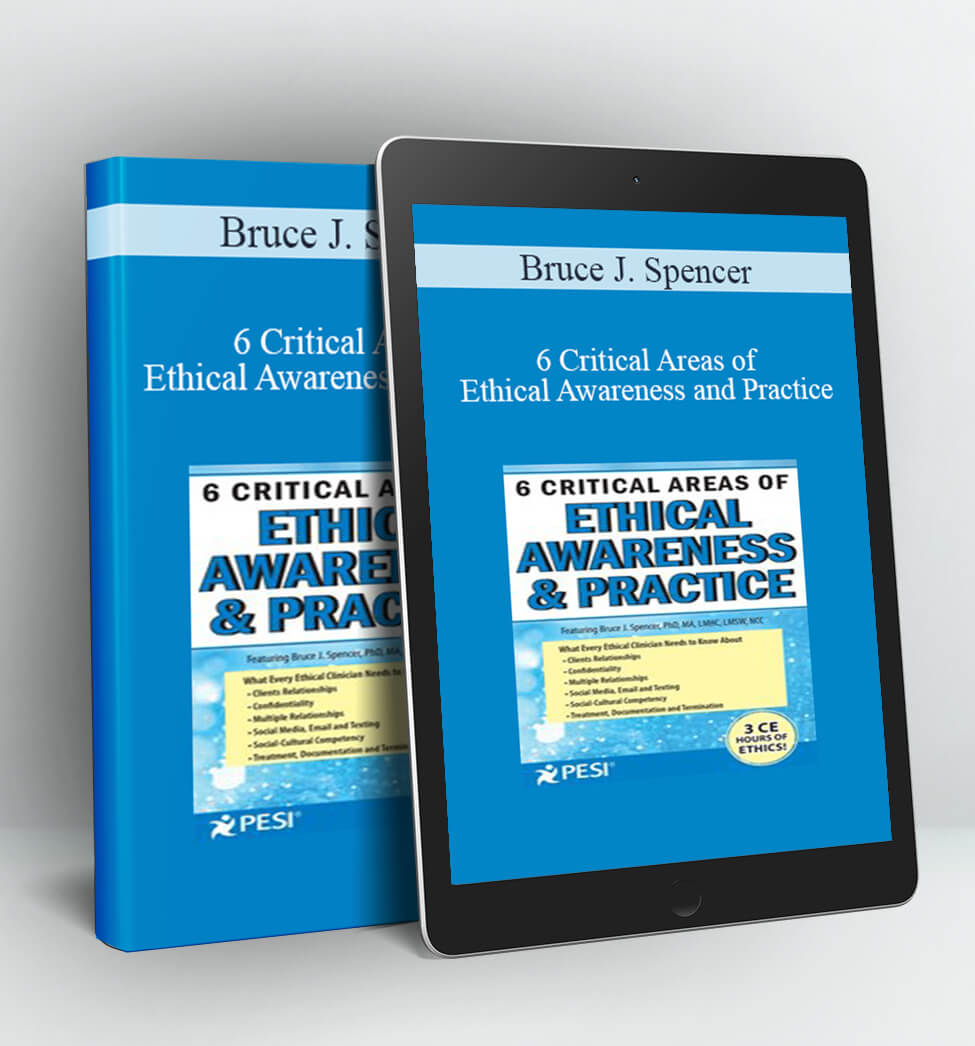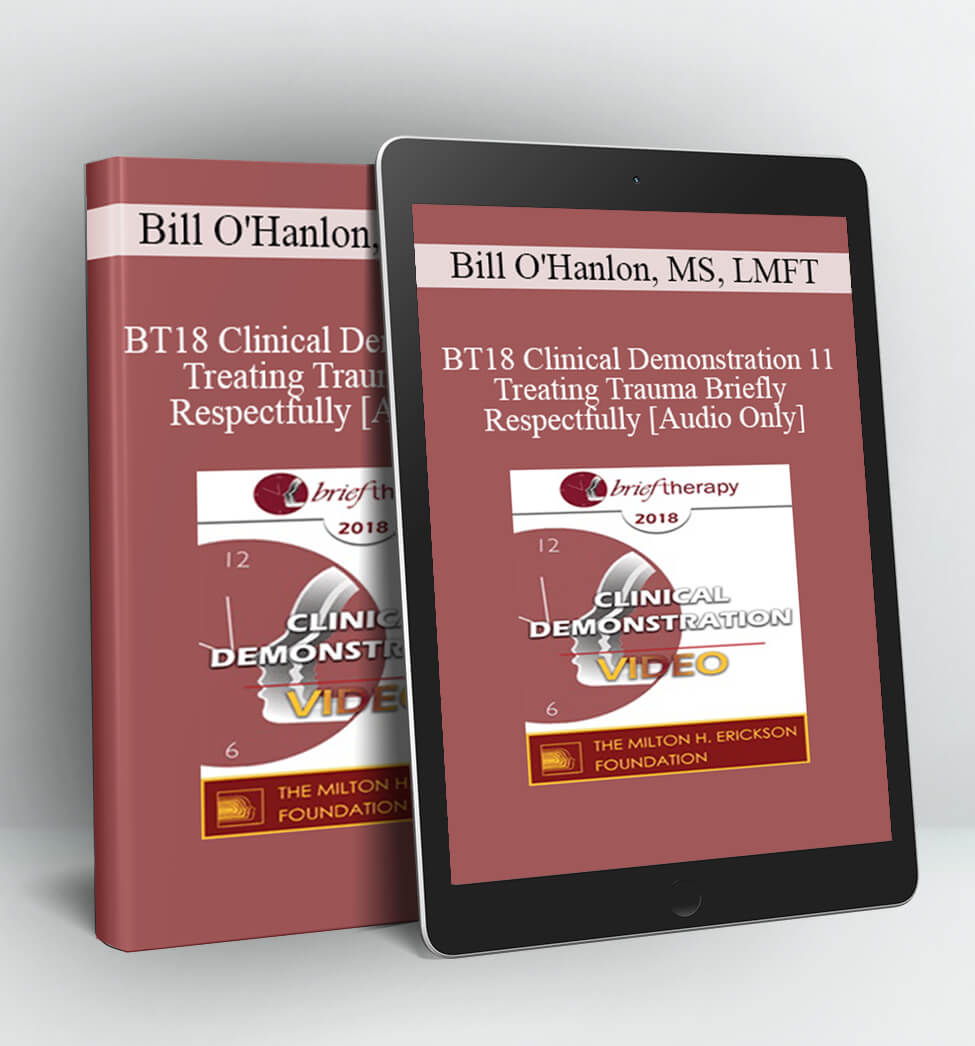6 Critical Areas of Ethical Awareness and Practice – Bruce J. Spencer
- Faculty:
- Bruce J. Spencer, Phd
- Duration:
- 2 Hours 36 Minutes
- Format:
- Audio and Video
- Copyright:
- Feb 10, 2020
Description
The risk of ethical and legal trouble is the biggest fear for many mental health professionals. Staying up-to-date on the ever-changing ethical challenges is critical to your success. This recording will teach you how to safeguard yourself from 6 critical areas that pose the greatest challenges. Become confident in your ability to safely avoid today’s top ethical landmines.
Purchase today and:
- Learn how to avoid the largest pitfalls in the therapist/client relationship
- Explore the ethical limits of confidentiality and disclosure
- Learn the do’s and don’ts of social media, email and texting
- Examine documentation and termination best practices
Handouts
| Manual – 6 Critical Areas of Ethical Awareness & Practice (1.9 MB) | 41 Pages | Available after Purchase |
Outline
The Therapist and Client Relationship
- Ethics and Standards Overview
- Objectivity and your clients
- Clinical presence and professional influence
- Rationalizations that can harm the client
- Opinions and values the therapist needs to manage
Confidentiality
- Ethical disclosures and confidentiality limits
- Informed consent and education of client about mandated disclosures
- Your obligation when imminent risk of danger is present for the client or others
- Decisions to inform third parties and documentation
Multiple Relationships
- Interpreting the ethical language regarding relationships
- What constitutes a boundary crossing vs. an ethical violation?
- Is a client necessarily always “off bounds” with regard to future social interaction?
- What exceptions exist and are they legitimate?
Ethical Practice In A Techno World
- Risks of using email, texting, “tweeting” and other electronic messaging
- Risks of social networking with clients
- Internet and Skype counseling risks
Socio-Cultural Competency
- Can a clinician be 100% socially and culturally competent?
- If the clinician does not feel competent with a specific socio-cultural issue, does referring the client to another make a negative statement to the client?
- Does a clinician need to be an “expert” to counsel persons of diversity?
Treatment Plans, Documentation, and Termination
- Over-emphasis on a diagnostic labels vs treating the client
- Establish a true conjoint treatment plan that addresses the client’s needs and abilities
- Attention to appropriate documentation and avoiding “omission or exaggeration” of client issues
- Informing the client of the treatment focus and ultimate goal of successful termination
- Maintaining focus of the treatment on the original goals
Faculty
Bruce J. Spencer Phd Related seminars and products: 1
Bruce J. Spencer, PhD, MA, LMHC, LMSW, NCC, has 44 years of experience as a clinician and administrator of inpatient mental health and chemical dependency programs, including 10 years of independent clinical practice. He holds a doctorate in clinical psychology and has 10 years of experience as an adjunct professor of psychology. Additionally, he has written curricula for ethics and solution-focused treatment and published numerous articles about ethics. Specializing in ethical issues, he has more than 1,000 hours of advanced education in ethics, a certification in Advanced Ethical Studies, and has presented ethics seminars for 40 years. He is licensed in Washington (LMHC) and Michigan (LMSW), as well as by the National Board of Counselors Association.
Speaker Disclosures:
Financial: Bruce Spencer receives a speaking honorarium from PESI, Inc.
Non-financial: Bruce Spencer has no relevant non-financial relationship to disclose.
Access Download 6 Critical Areas of Ethical Awareness and Practice – Bruce J. Spencer right now!
Delivery Method:
After your purchase, you’ll get access to the downloads page. Here, you can download all the files associated with your order.
Downloads are available once your payment is confirmed, we’ll also send you a download notification email separate from any transaction notification emails you receive from Vinlearn.




